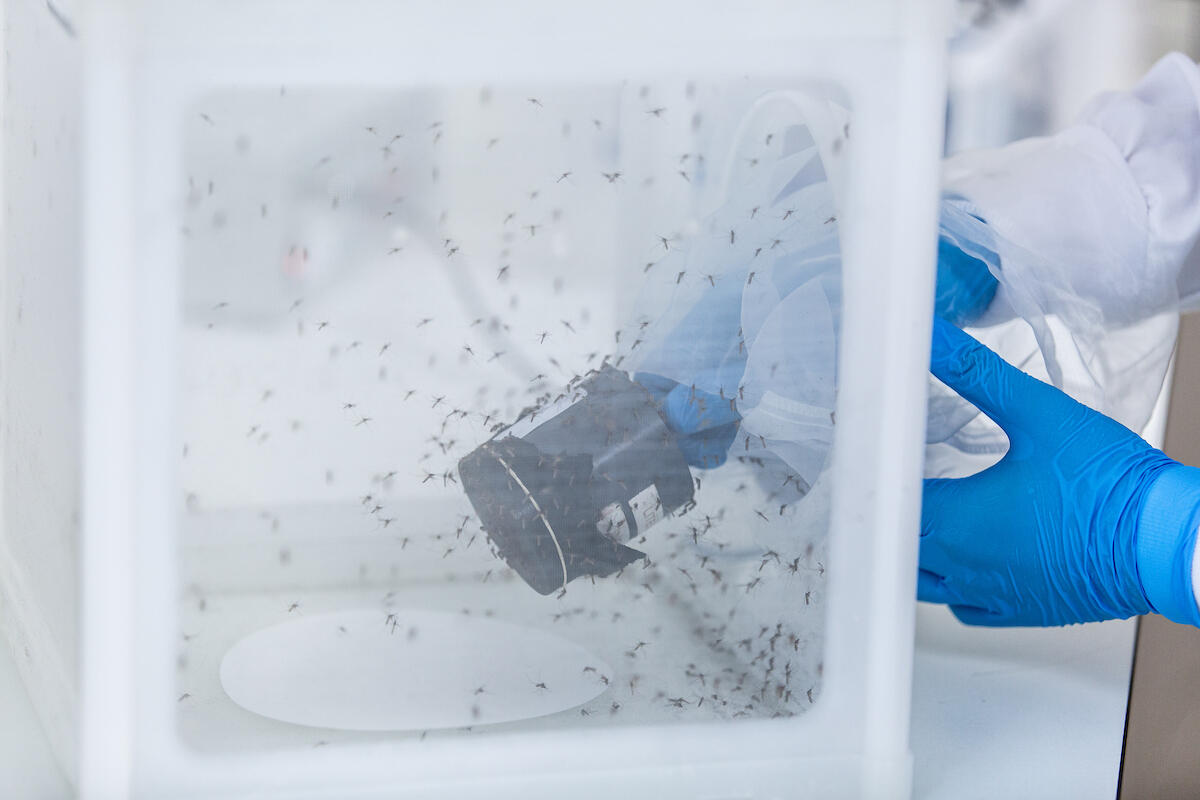
A new report supported by Liverpool School of Tropical Medicine has revealed that UK research and development into neglected diseases offers a staggering return on investment, in both health and economic terms. The UK’s funding – if sustained – would produce a societal return across the world of £1.39 trillion by 2040, including saving nearly 1.5 million lives.
The new report, published on World Malaria Day by Impact Global Health in collaboration with LSTM, also found that the UK directly benefits from R&D into diseases like malaria, HIV and tuberculosis. It revealed that the UK economy would gain an additional boost of £7.7 billion by 2040 from public funding of neglected disease R&D. Some £6 billion has already been gained but around £1.5 billion, equivalent to an average of £100 million a year, is yet to be felt and is contingent on funding being sustained.
This overall return of £7.7bn over the period also includes catalysing more than £4.8 billion in private sector investment into R&D and the creation of nearly 4,000 UK jobs. Over a quarter of this £7.7bn in economic benefit is attributable to malaria alone, showing the significance of the UK’s leadership on the disease on World Malaria Day.
However, the report raises the alarm that these benefits could be lost if official development assistance (ODA) budget cuts continue as well as other budget pressures, negatively impacting drugs, treatments and diagnostics currently being researched as well as those awaiting rollout. It estimates that as many as one million additional lives could be at risk in such a scenario, around 15% of the total number of recorded deaths from COVID-19, for context.
The report’s foreword, co-written by Professor David Lalloo, Vice-Chancellor of Liverpool School of Tropical Medicine and Professor Liam Smeeth, Director of London School of Hygiene & Tropical Medicine, says: “This new report from Impact Global Health clearly demonstrates the impact that UK public funding has had in terms of lives saved and improved, as well as cases of neglected disease prevented. And the numbers are staggering.
“By 2040, the £3 billion of global health R&D funding invested by the United Kingdom since 1994 will have saved 1.43 million lives and prevented 183 million cases of neglected disease.
“Behind each one of the numbers is a person, a family, a community whose lives have been saved or changed for the better. We believe that as one of the richest nations in the world, the UK has an ethical responsibility to take a lead on breakthroughs in neglected diseases.
“But the case for continued support and investment is much stronger than just ethical responsibility; there are widespread and measurable economic and social benefits not only in the countries where these diseases occur but also felt in the UK from this global health R&D.”
The report spotlights a range of case studies demonstrating the impact of the UK’s leadership on science that have driven profound health improvements worldwide. For example, the New Nets Project, funded by the UK government through Unitaid and the Global Fund, and led by the Liverpool-based Innovative Vector Control Consortium (IVCC) has been a transformative UK-led initiative in the fight against malaria in sub-Saharan Africa. Third party analysis suggests this project, in parallel with the deployment of millions of additional nets, averted an estimated 13 million cases of malaria, saving an estimated 24,600 lives, leading to $28.9 million in financial savings to national health systems.
The report concludes that if UK funding cuts prevent products in late-stage trials reaching the market or being rolled out, 157 million more cases of neglected disease could erupt – threatening lives and economies across the globe.
Impact Global Health have joined forces with LSTM and Malaria No More UK to call on the government to understand the economic and health consequences of cutting aid and investment into neglected disease R&D, both domestically and globally.
Professor Lalloo, said: “There is a very real risk that funding cuts now or in the future will reduce the impact of what has already been achieved. Now is the time for bold action to protect critical investment, every pound of funding lost will negatively impact the UK economy, make the UK more vulnerable to future pandemics, and most importantly, expose the most vulnerable communities around the world to greater health threats.”